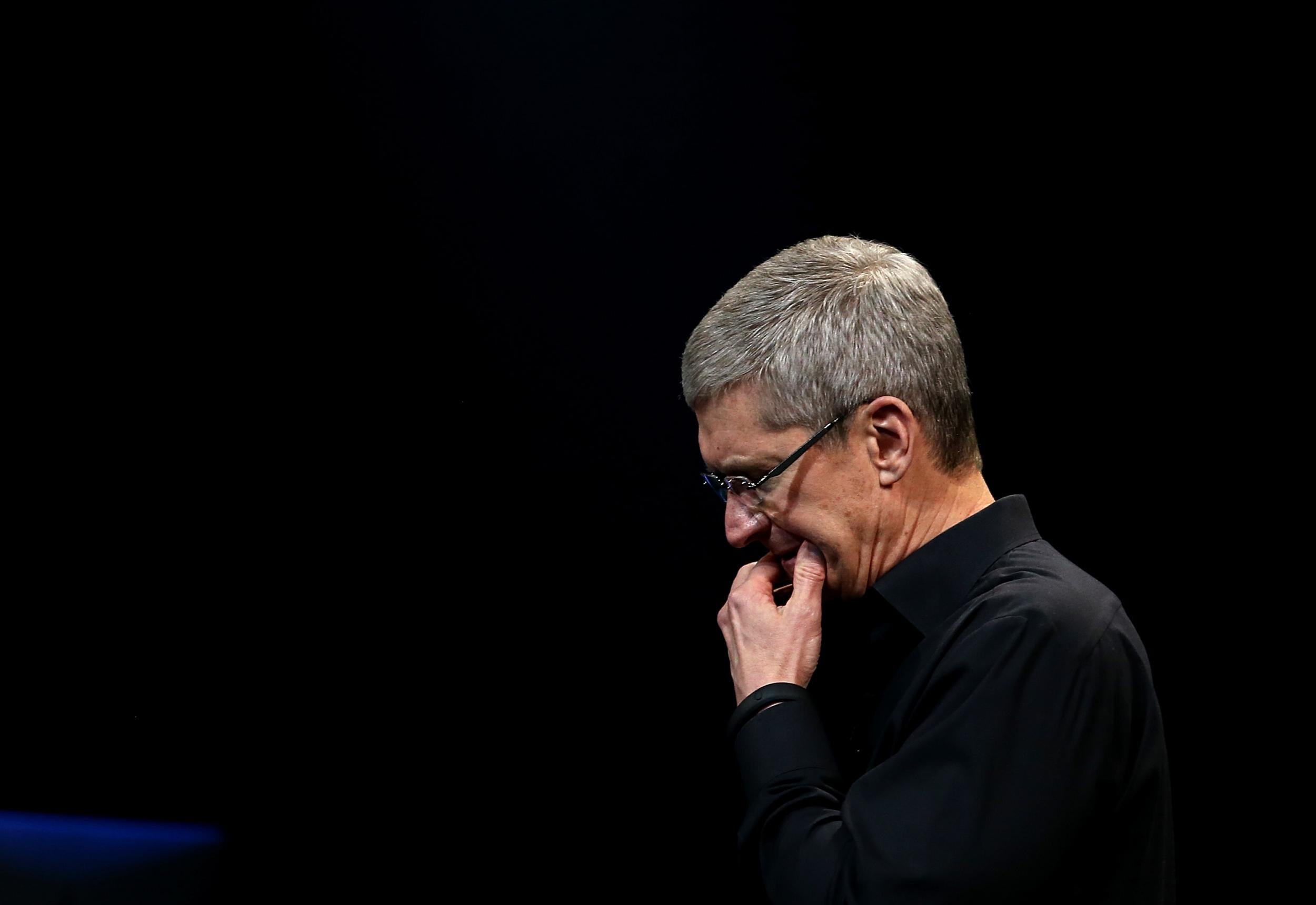Apple CEO Tim Cook blasts ruling requiring company to break into San Bernardino shooter’s iPhone
‘The United States government has demanded that Apple take an unprecedented step which threatens the security of our customers,’ Mr Cook wrote in a passionate public letter. ‘We oppose this order, which has implications far beyond the legal case at hand’

Your support helps us to tell the story
From reproductive rights to climate change to Big Tech, The Independent is on the ground when the story is developing. Whether it's investigating the financials of Elon Musk's pro-Trump PAC or producing our latest documentary, 'The A Word', which shines a light on the American women fighting for reproductive rights, we know how important it is to parse out the facts from the messaging.
At such a critical moment in US history, we need reporters on the ground. Your donation allows us to keep sending journalists to speak to both sides of the story.
The Independent is trusted by Americans across the entire political spectrum. And unlike many other quality news outlets, we choose not to lock Americans out of our reporting and analysis with paywalls. We believe quality journalism should be available to everyone, paid for by those who can afford it.
Your support makes all the difference.Tim Cook has written a passionate letter to Apple customers, arguing that a US government ruling to break into a terrorists’ handset could “threaten the security” of Apple customers.
Apple has been ordered to help the FBI break into an iPhone that belonged to Syed Rizwan Farook, who along with his wife killed 14 people in California last year. The order requires Apple to fundamentally alter the security of the iPhone in a way that could make innocent people more at risk, Mr Cook has claimed.
Apple has helped the FBI by making available data that it has in its possession, Mr Cook said. The company has also helped with the agency’s investigations by making Apple engineers available to advise on how best to proceed, he continued.
“But now the U.S. government has asked us for something we simply do not have, and something we consider too dangerous to create,” he wrote, in a passionate letter written hours after the judgement was made. “They have asked us to build a backdoor to the iPhone.”
Backdoors are weaknesses in the security of computers including phones, which allow their security measures to be circumvented. Intelligence agencies in the UK as well as the US have repeatedly asked that technology companies implement them, but the companies themselves have argued that such a requirement would make innocent and law-abiding citizens unsafe.
“Specifically, the FBI wants us to make a new version of the iPhone operating system, circumventing several important security features, and install it on an iPhone recovered during the investigation,” he wrote. “In the wrong hands, this software — which does not exist today — would have the potential to unlock any iPhone in someone’s physical possession.”
Modern security technology works by encrypting data, which scrambles it so that it can only be read by someone with the right “key”. That key is usually embedded into a device, meaning that only a specific phone can read messages that are stored on it.
But backdoors work by adding weaknesses to the software that allow people to get around those checks. The FBI has argued that such backdoors would be kept safe, but Mr Cook said that once it was created, “the technique could be used over and over again, on any number of devices”.
“We are challenging the FBI’s demands with the deepest respect for American democracy and a love of our country,” Mr Cook wrote in his letter. “We believe it would be in the best interest of everyone to step back and consider the implications.
“While we believe the FBI’s intentions are good, it would be wrong for the government to force us to build a backdoor into our products. And ultimately, we fear that this demand would undermine the very freedoms and liberty our government is meant to protect.”
Apple has been unusually vocal about its opposition to government plans to weaken security on either side of the Atlantic. Mr Cook himself has spoken against legislation in interviews, and the company submitted documents criticising the draft Investigatory Powers Bill, which the UK Government hopes to use to give sweeping new powers to Britain’s spies.
Join our commenting forum
Join thought-provoking conversations, follow other Independent readers and see their replies
Comments